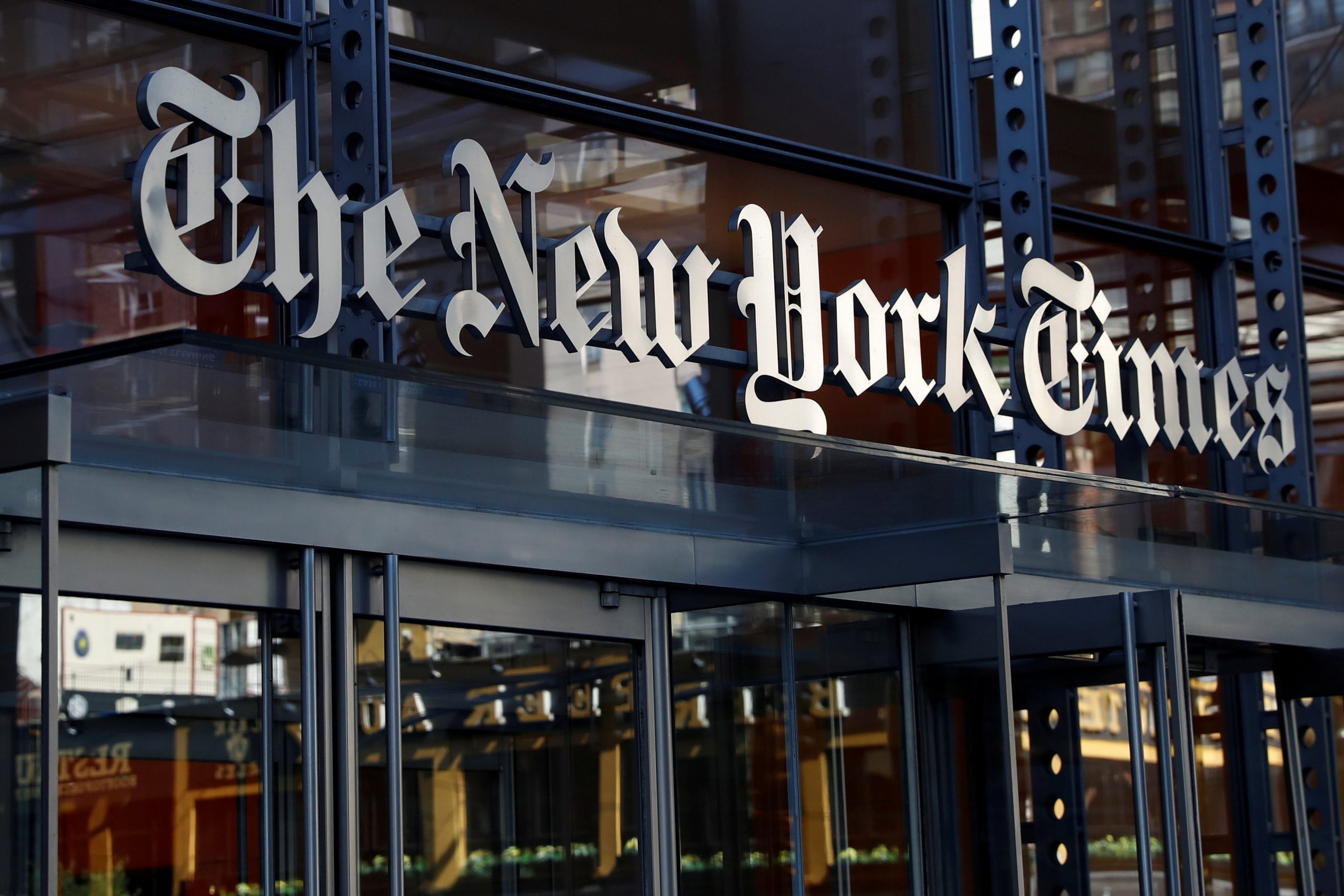
Willie R. Tubbs, FISM News
[elfsight_social_share_buttons id=”1″]
A judge in New York has ordered the New York Times to refrain from publishing an article about noted conservative activist group Project Veritas.
As reported by Reuters, Justice Charles Wood of the Westchester County Supreme Court ordered the content of certain memos obtained by the Times following an FBI raid not be made public.
The New York Times filed an appeal Friday, but Justice Leonard Austin of the state Appellate Division in Brooklyn upheld Wood’s initial ruling.
“Today’s decision to allow the injunction is deeply disappointing,” Times spokeswoman Danielle Rhoades Ha told Reuters. “We look forward to explaining our position in court.”
The memos in question were obtained when the FBI raided the home of Project Veritas founder James O’Keefe and his organization’s headquarters.
The FBI, investigating the theft of a diary belonging to President Joe Biden’s daughter, obtained memos that included, among other things, correspondence between Project Veritas representatives and their attorneys. Using attorney-client privilege as its selling point, Project Veritas swayed the courts to intervene.
The raid drew widespread, bipartisan criticism even from Project Veritas’ most outspoken critics.
“Project Veritas has engaged in disgraceful deceptions, and reasonable observers might not consider their activities to be journalism at all,” Brian Hauss, senior staff attorney with the ACLU’s Speech, Privacy, and Technology Project, said in a statement last week. “Nevertheless, the precedent set in this case could have serious consequences for press freedom. Unless the government had good reason to believe that Project Veritas employees were directly involved in the criminal theft of the diary, it should not have subjected them to invasive searches and seizures.”
Attorneys for the Times argue the courts have overstepped their authority and are in violation of the First Amendment.
Courts preventing the printing or broadcast of material, known as prior restraint, is rare in the United States and, like any use of a governmental agency or body to suppress journalism, almost uniformly loathed across the political spectrum.
Prior restraint is also rigidly defined by the Supreme Court, which in 1971 ruled that the New York Times and Washington Post could print classified information found within papers leaked from the Pentagon.
The standard that emerged from that trial was that a journalist can publish information that was illegally obtained, so long as the journalist wasn’t the person who illegally obtained it. In general, courts are expected to view prior restraint as unnecessary, making it burdensome for applicants to prove that another party’s First Amendment rights should be suppressed.
In a statement obtained by Reuters, New York Times executive editor Dean Baquet said, “When a court silences journalism, it fails its citizens and undermines their right to know. The Supreme Court made that clear in the Pentagon Papers case, a landmark ruling against prior restraint blocking the publication of newsworthy journalism. That principle clearly applies here. We are seeking an immediate review of this decision.”
O’Keefe argues the Times is being selective in when it chooses to cry foul on Constitutional grounds, an allusion to his belief the paper had no problem with the FBI raids on his home and offices.
“The paper needs to decide if it is in favor of press freedom for all, or only itself, because it can’t have it both ways,” he told Reuters.
As reported by Fox News, Friday a group of Republican lawmakers, Reps. Jim Jordan of Ohio and James Comer of Kentucky and Sen. Ron Johnson of Wisconsin, launched an inquiry into the Project Veritas raids.
Republicans, who have also criticized Attorney General Merrick Garland for a memo asking for information about threats of violence to school board members and educators, argue the Department of Justice has become politicized.
